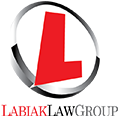Our Services
Our practice is primarily focused in helping you through bankruptcy. We also focus on medical malpractice, personal injury, and interesting civil cases.
Bankruptcy Law
Different Types of Bankruptcy and Which is Right For You
Which is Right for Me?
The answer to this question like most legal questions is: it depends. It depends on your income, it depends on your assets, it depends on what you are trying to accomplish. For some people, the answer is a Chapter 7 Bankruptcy, as it is better if you’re a high wage earner with few assets. For other people, it is a Chapter 13 Bankruptcy. Sometimes a Chapter 11 is the one to consider if there’s a business involved. For some people, it is not to file bankruptcy at all.
Sometimes a person’s situation can be determined with a quick 5-minute phone call and the solution is obvious. For other people, it will require some careful analysis with several options to choose from. No matter what your situation, your best idea is to just ask. We can work together to find a solution to your specific problem.
Chapter 7 Bankruptcy
Chapter 7 bankruptcy is a “liquidation” bankruptcy. You can typically only use this type of bankruptcy if you have sufficient income – usually more than the median income in your state. If you qualify, what happens is that some portion of your possessions are sold and the money from selling those possessions are used to pay off your creditors.
You’re allowed to keep some of your possessions during this process depending on the specifics in your state. This usually includes your home, your clothing, minimal transportation, a few hundred dollars’
If you hear stories of people repeatedly filing for bankruptcy, that usually means they’ve adopted some form of lifestyle where they repeatedly file for Chapter 7 bankruptcy. They usually don’t accumulate assets and spend the debt money they accumulate on experiences. Then, when they file for Chapter 7, there aren’t many assets for the creditors to take.
Chapter 11 Bankruptcy
Chapter 11 bankruptcy is usually the best option if you own a business. This form of bankruptcy typically allows a business owner to remain in control of their business while going through bankruptcy proceedings. This typically occurs if you own a business that isn’t able to pay its bills at the moment. If you do not own a business, Chapter 11 is not right for you.
Chapter 13 Bankruptcy
Chapter 13 bankruptcy is the most common type of bankruptcy. In this form of bankruptcy, you and your legal counsel come up with a debt repayment plan. During the process, the plan is usually adjusted a bit to match the creditor’s demands and your own ability to repay such debts. Often, these plans lower your monthly payments to the point that you can actually handle them within your income. Often, that also means that your total debt amount is lowered.
What’s the drawback? For starters, the cost usually is in the thousands – this is tacked onto the court-ordered debt repayment plan. The plan itself usually ties up almost all of your spending money for a few years as you’re paying off debts. It also damages your credit severely, as does any bankruptcy, but your successful repayments will help mitigate that damage.
Debt Consolidation
You may be able to do it, but be very careful.
There are a couple different ways to go about debt consolidation: 3rd party company, equity loan, and unsecured loan.
3rd party company: This is what most people think of when you hear debt consolidation. You pay a company a fee up front and then they take over all of your debts. What is typically happening is that they are attempting to settle your debt. The problem with this method is several. First, there is typically a large up-front fee, usually around $4000, that is paid before any money will go towards your debts. So every month you send them $700, and the only thing that is paid is there fees. Second they typically charge a monthly fee of around $50. That is a high number for basically having a bank account with them. Third, you have no legal protections from creditors. If a creditor decides to sue, whether you are using a debt consolidation company or not does not matter, they can and will sue you. Fourth, this process can stretch on for years and years with no definite end date.
Another word of caution, don’t believe that because a company is a non-profit that they have your interests at heart. All non-profit means is that all the money has to be spent and that it cannot be given to owners or shareholders. So if there is a million dollars left over at the end of the year, a non-profit can use that money towards salary, travel, or any other tangential business purpose to make the profit go away. Non-profit does not mean noble.
If you are looking for a company that will loan you a pile of cash to consolidate $100,000 of 25% interest debt to a 5% loan for the same amount that is unsecured, this is very difficult. If you are a doctor it may be possible, but for the rest of us, it just isn’t out there unless you have collateral to pledge. Which leads to a second option . . .
Equity loan: If you have a house with sufficient equity, you can take out a loan against the home and use this money to pay off high interest loans. The rates on equity lines are usually fairly low compared to unsecured loans. You have only one payment, a lower rate, so what is the catch?
The biggest trap with these loans is not the loan, but the behavior of the person taking out the loan. If the situation that caused the borrowing on the credit cards is not resolved, all that has happened is the delaying of the inevitable. Worse, if you trade unsecured credit card debt for secured debt, when you file bankruptcy, the secured debt is not going away unless you surrender the house. I know the math looks good on an equity line, but if the cause of the debt is not fixed, a year later the problem will be back with unsecured debt, except this time you will also have an equity line of debt to deal with as well.
Unsecured loan: In very limited situations, for smaller amounts it may be possible to consolidate a small pile of unsecured debt, typically around $10,000 into one loan. If you seek this out, try a credit union as they are more likely to give out a more competitive rate on these types of loans. For most people, $10,000 is not going to change things dramatically, but if that is all you have on 3 or 4 credit cards, and just need a little help, this can be an inexpensive way to resolve a problem. Just make sure the cause of the debt is taken care of so you don’t end up with more credit card debt and the unsecured loan payment as well.
We’re Here To Help You
We know going through any legal situation can be stressful.
Stephen Labiak and his team is here to help guide you step-by-step through this process. We’re here to help you and answer your questions.
Give us a call today for your free consultation and we’ll show you how we set ourselves apart from other law firms in Visalia and Fresno.

